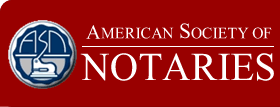Legal Advice
Avoid Giving Legal Advice – Helpful Tips for NotariesPublished November 29, 2024
As a notary public, you cannot give legal advice unless you are also an attorney. But what exactly is considered “legal advice”?
This is a question every U.S. notary must be able to answer, to avoid the engaging in the unauthorized practice of law (UPL).
What is “UPL”?
Unauthorized practice of law, or “UPL,” is the practice of law by an individual who is not licensed or admitted to practice law in a given U.S. state or territory. It’s a serious offense, with serious consequences for an offending notary.
Here are a few common examples of notaries, who are not also attorneys, engaging in UPL:
• Discussing or explaining the effect of a document or transaction.
Non-attorney notaries may not offer opinions on a document’s contents or explain its effects. To do so would mean the notary is interpreting the document’s contents and effects, which would exceed the limits of a non-attorney notary’s authorized powers.
If necessary, a notary must not hesitate to tell document signers that any questions concerning the needed steps to fully execute a particular document, a document’s consequences, or a document’s effects should be directed to the document issuer, the parties relying on the document, or an attorney.
• Choosing the notarial certificate language.
Notaries are occasionally asked to notarize a signature, but there is no notarial language on the document presented for the notarial act. Without this language, a notary has no indication of which notarial act to perform. Non-attorney notaries are not permitted to decide, without appropriate input, which notarial act and corresponding notarial certificate should be chosen. The named document signer, or another party relying on the signed and notarized document, or an attorney, must choose the notarial act to be performed.
• Drafting or preparing any contents of a legal document.
A notary commission alone does not empower a person to provide legal services such as drafting or creating legal documents. A non-attorney providing these services—especially if they charge a fee for the service—is at substantial risk of violating state laws against practicing law without a license.
• Advertising notary services in a non-English language.
Throughout the United States, notaries are prohibited from advertising their services in any language other than English. Translation of the phrase “Notary Public” into another language is strictly prohibited.
This “English only” mandate for the term “notary public” is necessary, to avoid the incorrect impression that U.S. notaries have the same, more expansive powers as notaries in other countries. Sadly, in the United States unscrupulous persons prey on immigrants who have not yet learned this significant difference in the powers of U.S. notaries, versus notaries commissioned in other countries. So, state notary laws impose stiff penalties for this offense.
Seek Qualified Help When Needed
A U.S. notary should never guess how to proceed with a notarial act. There’s ample help they can access, by consulting their state notary laws and administrative rules, handbooks and other “how-to” guidance issued by each state’s notary commissioning officer or entity; contacting their state’s notary commissioning officer or entity; or reviewing the helpful resources provided by American Society of Notaries (browse our website, and view available notary handbooks and reference manuals in our online store).
Never guess or try to “go it alone”!
 Your data is safe with us! (read our privacy and security policy)
Your data is safe with us! (read our privacy and security policy)

